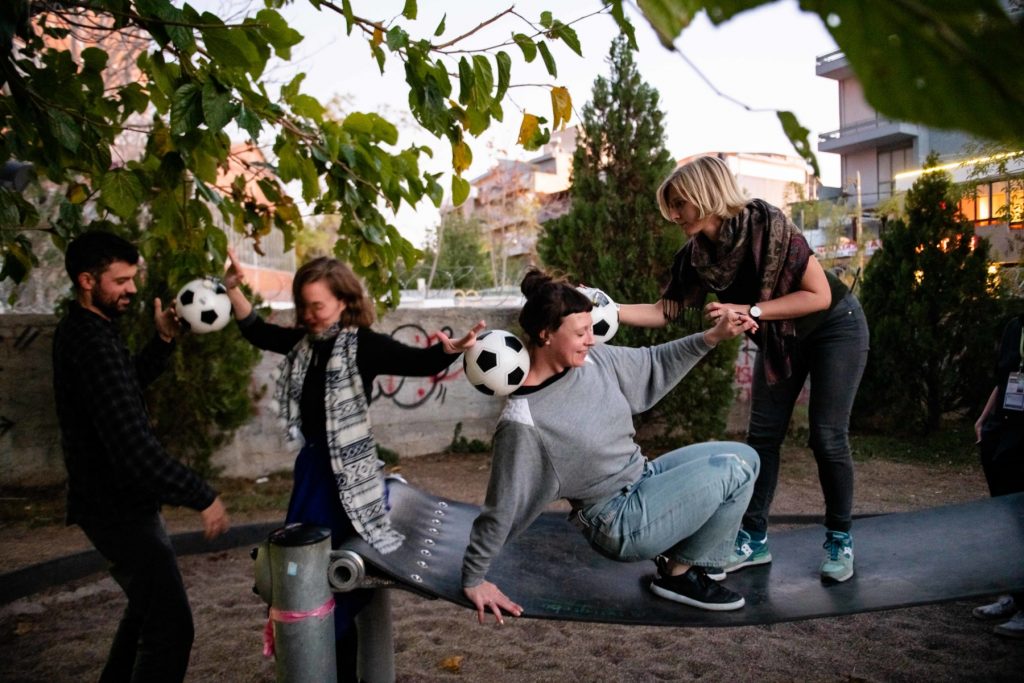Date: 30 January, 2020
Time: 20:00
Location: Pakhuis de Zwijger (Workspace), Amsterdam
Register: by emailing urbaninterfaces@uu.nl before March 1
Cities have always been sites for play and games, from the ‘bread and circuses’ of classical Rome to contemporary players chasing virtual characters with Pokemon Go. Over the last few years, around labels such as the Playful & Playable City, an international movement has emerged explicitly promoting playfulness as a design approach for our contemporary cities. By orchestrating playful experiences in our cities, they seek to counter the ever more control- and efficiency-oriented visions of the smart city. Tonight’s speakers will discuss examples of strategies and dramaturgies for playful cities. Can public spaces be activated by making them more playful?
Speakers
Michiel de Lange is an Assistant Professor in New Media Studies, Department of Media and Culture Studies, Utrecht University, Netherlands; co-founder of The Mobile City (http://www.themobilecity.nl), a platform for the study of new media and urbanism; and co-founder of the [urban interfaces] research platform at Utrecht University. His research interests focus on how (mobile) media shape urban culture and vice versa. Currently, he is co-lead of a NWO funded project “Designing for Controversies in Responsible Smart Cities.” See https://www.uu.nl/staff/MLdeLange/0 and http://blog.bijt.org/.
Sigrid Merx is an Assistant Professor in Theatre Studies, Department of Media and Culture Studies, Utrecht University, Netherlands. She is one of the core members of the research group [urban interfaces] and one of the initiators of Platform-Scenography, a platform invested in deepening the understanding of scenographic working and thinking. She occasionally works as a dramaturg and curator. Her current research focuses on critical performative interventions in public space that reflect on issues of the urban, publicness and civic engagement and on creative methods of investigating, mapping and intervening in public spaces.
Eva Pel (NL 1973) is living and working in Amsterdam. Her artistic practice is an ongoing investigation into the ordinair, public space, social-economical issues and structures of powers. This process results in short films, photographic series, installations and publications. Her work has been exhibited amoungst others at Van Eyck Academy Maastricht, University of Amsterdam, Huize Frankendael, Nieuw Dakota, Witzenhausen Gallery NY, Salzamt Linz Austria. Pel was invited to join the Academy honours programme for young artists and scientists (KNAW & Akademie van Kunsten Netherlands) in 2017. In 2019 she received the Mondrian Established Talent Grant. Recently she made the film “Sous les pavès, la plage”, a commissioned assignment for the National Governmental Architect Floris Alkemade.
Originally trained as a product designer, Sara Daniel has developed an interdisciplinary practice dedicated to rethinking the possibilities of social and political engagement. In her work, she combines forms associated with activism such as sit-ins and protests with the making of context-based scenarios, complete with props, music, costumes and performances. With them, she seeks to make visible and accessible major societal issues, including the housing crisis in Amsterdam and increased atomization of communities.
Trust in Play and Arias
This event is organized in collaboration with Trust in Play and Arias. ARIAS is an independent platform for collaborative research practices through the arts and sciences, founded in 2016 by five educational knowledge institutions in the city of Amsterdam: Amsterdam University of the Arts, VU Amsterdam, Gerrit Rietveld Academie and Sandberg Instituut, Amsterdam University for Applied Sciences, and University of Amsterdam. ARIAS operates in the space between these five institutions, making connections between artists and academics. ARIAS forwards that researchers across faculties need to engage outside the walls of singular disciplines, scenes, and institutions, with the purpose to exchange research values from within other methodologies and practices.
Trust in Play supports emerging professionals in the field of urban game design, mentoring them to build a sustainable practice and playfully exploring new relationships of trust in cities. The school offers three branches, one in Amsterdam, one in Athens and a Nomadic branch for trainees in other European cities. See www.trustinplay.eu.
